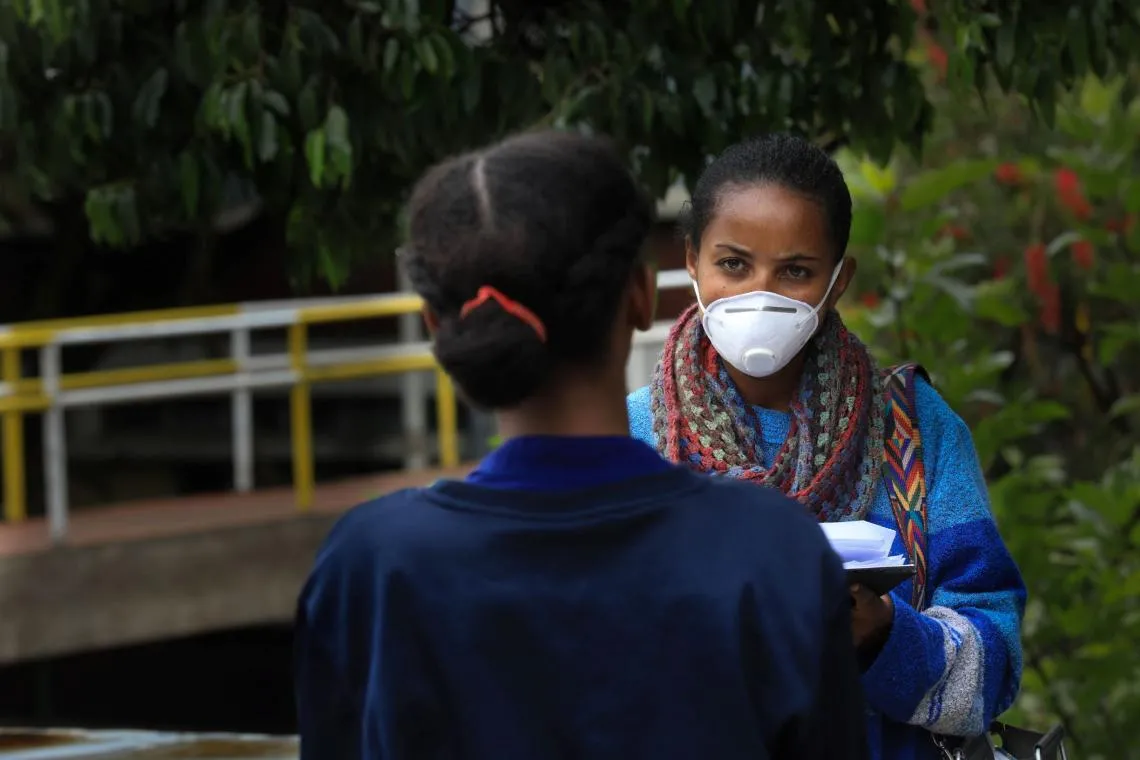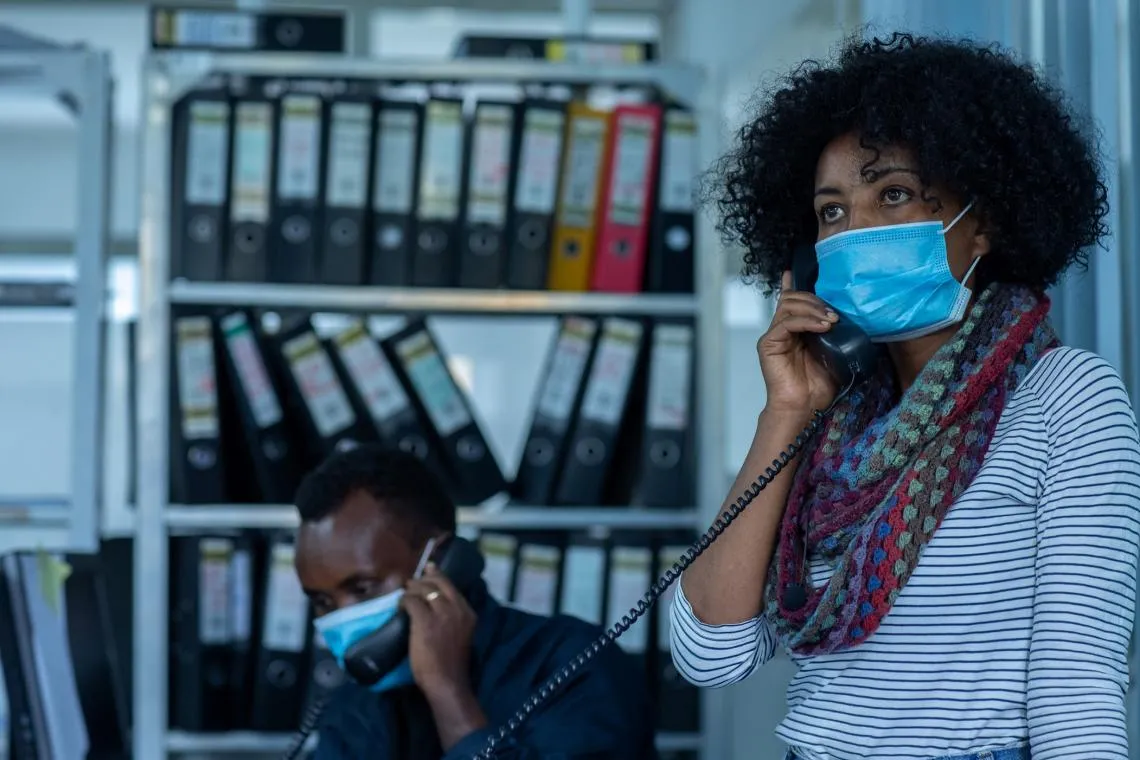Social Workers: Essential to COVID-19 Response
“It feels good to help others, especially children,” says Tirusew Getachew, a social worker based in Ethiopia’s capital. “But there aren’t many of us [social workers], and it’s challenging work.”
Tirusew is one of three social workers currently attached to five quarantine centres for Ethiopian migrants who have been deported from other countries. An uptick in the number of migrants returning home amid the COVID-19 pandemic – many of them unaccompanied children below the age of 18 – has left the quarantine centres struggling to ensure that returnees are able to reintegrate safely.
Tirusew, whose name means ‘good person’ in Amharic, one of Ethiopia’s main languages, knows she must tread carefully with the children arriving at the centres. Many are deeply distressed after enduring emotional and physical abuse at the hands of smugglers and traffickers.
“I don’t jump straight into questions about what happened to them,” she says. “I take my time to earn their trust so that they can talk freely.”

Tirusew’s empathetic approach isn’t just a product of her training – it stems in part from her own difficult childhood. “My father died when I was 12 and I had to take care of my six siblings,” she says. “Since then, I’ve felt that protecting children is my responsibility.”
After taking some time to make a child feel comfortable, Tirusew conducts a thorough vulnerability assessment including what happened before, during and after the child’s migration. Migrants who have suffered psychological, sexual and physical abuse are referred for psychosocial support and other health or care services.
Upon completion of the assessment, Tirusew begins the process of tracing a child’s family. It’s easier said than done. Many of the children embarked on treacherous journeys from remote rural villages with little or no access to telephones or other means of communication. In cases where the family is traceable, Tirusew will often accompany the child to his or her village.
Coming home is complicated
But not every child wants to go home. Some children were abused by a family member before leaving. Others feel guilty coming home because their families sold some of their belongings to try to pay the exorbitant amounts demanded by brokers and traffickers to get them out of the country in the first place.
Tirusew works closely with local officials to help children reintegrate with their families and communities, when it’s considered safe to do so, and to enrol them in school. But COVID-19 poses new challenges to reintegrating children. Not only is the number of returnees growing quickly, but those returning are required to be quarantined for 14 days to ensure they don’t have the coronavirus, which has the potential to create further stigma in the community.

“People don’t understand the purpose of the quarantine,” says Kidist Gebrehanna, a manager at the centre where Tirusew has been working. “These migrants and returnees aren’t here because they are sick. It’s just a precaution.”
Site management and day-to-day operations at the quarantine centres are supported by the International Organization for Migration, while UNICEF – working closely with the Addis Ababa Bureau of Women, Children and Youth – has supported the recruitment, training and deployment of social workers. UNICEF has also provided soap, hygiene materials, and dignity and recreation kits, among other items.
Karin Heissler, Chief of Child Protection at UNICEF Ethiopia, says the country is facing a shortage of social workers. “[They] are critical to identifying risks, facilitating access to protection services and ensuring that children are protected from violence, exploitation, neglect, and family separation.”
Tirusew hopes to reunite the first group of unaccompanied quarantined children with their families in the next few days*, a major child protection milestone. But despite the importance of her work, Tirusew says she doesn’t think people understand what an integral part social workers are playing in keeping children safe.
“Social workers are like doctors and nurses. We need encouragement from everyone.”
